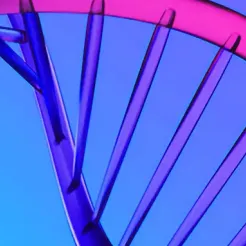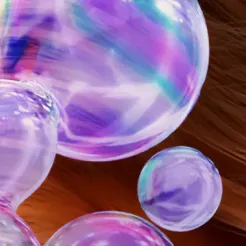
Hair loss treatment – highlights & latest trends
Held in London, UK, in the prestigious Royal Society of Medicine, the World Trichology Conference 2023 was the first-ever international conference jointly organised by two renowned trichology institutes:
The Institute of Trichologists - A leading professional association for trichologists worldwide
The International Association of Trichologists - Known for producing the first trichology course in the USA at the University of Southern California
The event boasted 16 keynote speakers, all who were renowned trichologists and doctors, sharing new findings, evidence, insights into "missed" diagnoses, and the crucial role of nutrition and mental health in hair loss treatment.
This conference, attended by professionals from over 22 countries, highlighted the latest trichology knowledge and research, which we in turn would like to share with you.
Latest Trends in Hair Loss Treatment
Experts in trichology were emphasising the following key ingredients that are revolutionising the industry’s approach to hair loss:

Exosomes: Cell-to-Cell Communicators
Exosomes are the latest innovation in aesthetic science - nano-sized sacs containing a myriad of bioactive molecules such as proteins and nucleic acids that aid in communication between cells in your scalp and tissue regeneration.
Pre-clinical studies on exosomes have shown promising results on wound healing, alopecia and skin rejuvenation.[1] More studies are underway for their ability to stimulate hair follicle activity and support hair regeneration.
Svenson Hair treatments with Exosomes:

Growth Factors in Hair Loss Treatment
One of the most significant advancements discussed amongst experts was the emphasis on utilising specific growth factors treatments of hair loss. Esteemed speakers like Dr. Jeff Donovan, Sue Camp, and Dr. Lucas Fustinoni all endorsed the potential of growth factors in promoting hair regrowth and addressing hair loss effectively. Dr Lucas Fustinoni also happens to be the creator of Youtube’s most subscribed to channel for Trichology - @drlucasfustinon - with over 128 million views and more than 3 million subscribers! The common theme among all speakers’ notes on Growth Factors, is how the signalling molecules in these factors play a crucial role in cell growth, differentiation, and tissue repair. These factors have gained traction in hair loss treatment due to their potential to stimulate hair follicle growth and improve hair density. By applying growth factors topically or through the use of other innovative methods, healthy hair growth is triggered.
Svenson Hair treatments that utilises clinically-proven Growth Factors:

Growth Factors in Hair Loss Treatment
Stem cells possess the remarkable ability to differentiate the various cell types and regenerate, making them a powerful tool in hair growth treatments. Stem cell-based therapies are at the forefront of hair loss treatment research, offering hope for more effective and lasting solutions.
Svenson Hair treatments that harnesses the power of stem cells:
Need a boost in your hair growth journey? Bring home the StemPlus ‘On-the Grow’ Serum to apply the solution in between treatment sessions!

Amino Acids: Building Blocks of Hair
Amino acids are fundamental components of proteins, which are essential for hair structure and growth. Incorporating amino acids into hair loss treatments help provide the necessary building blocks for strong and healthy hair. Amino acids support hair follicle health, ultimately aiding in preventing hair loss and promoting hair regrowth.
Svenson Hair treatments with Amino Acids:

Antioxidants: Combating Oxidative Stress
Oxidative stress can contribute to hair follicle damage and hair loss. Antioxidants such as vitamins C and E can help neutralise harmful free radicals and reduce oxidative stress. By incorporating antioxidants into hair loss treatments, trichologists aim to protect hair follicles and create a favourable environment for hair growth.
Svenson Hair treatments that protects against Oxidative Stressors:

Zinc and Minerals: Nourishing the Scalp
Zinc and various minerals are essential for maintaining a healthy scalp and hair. Zinc, for example, supports the immune system and aids in cell division, critical for hair follicle health. Minerals like iron and selenium also play vital roles in supporting overall hair health and preventing hair loss.
You can easily incorporate zinc and minerals into your hair care routine, even at home, by using the Svenson Follicels Home Care Series - Thickening Serum & Recharge Lotion. Packing in all the essential minerals your hair follicles need, your hair will be healthier and thicker with daily use.

Apigenin: Potential Hair Growth Stimulant
Apigenin, a natural bioflavonoid found in certain plants, has shown promise as a hair growth stimulant. Research suggests that apigenin may prolong the anagen (hair growth) phase and promote the proliferation of hair follicle cells.
Cutting-edge Svenson Hair Treatments with Apigenin:
Identical Twins do Not Bald the same time

Unveiling the Complex Causes of Hair Loss: Beyond DHT to Non-Androgenic Factors
Dr. Rajesh Rajput, a distinguished speaker at the conference, challenged the conventional belief that dihydrotestosterone (DHT) alone is the primary culprit of hair loss. He emphasised the importance of understanding non-androgenic factors that significantly contribute to hair loss. To highlight this, he shared a case study on a pair of twins who were at different hair loss stages.
He also shared that contrary to popular belief, studies on 5-alpha-reductase genes, which are typically linked to DHT and androgenetic alopecia (AGA), have failed to establish a direct association. Further challenging the points that DHT and genetic factors are not the sole drivers of hair loss.

Metabolic, Environmental, Lifestyle, and Nutritional Influences
Dr. Rajput highlighted the multifaceted nature of hair loss by delving into various non-androgenic factors that significantly impact hair health:
- Metabolic factors - encompassing the body's biochemical processes and hormone regulation
- Environmental factors - exposure to pollutants and toxins
- Lifestyle choices - diet, stress levels, and exercise routines
These insights underscore the importance of adopting a holistic approach to hair loss treatment.
Stress-Induced Hair Loss and Oxidative Stress
Stress, both physical and emotional, was highlighted as a significant factor influencing hair loss. Stress-induced neuropeptide - Substance P and oxidative stress can inhibit the hair’s autophagy phase, a cellular process that involves the body recycling damaged cells.
Dr. Rajput explained that oxidative stress, resulting from an imbalance of free radicals and antioxidants, can disrupt the hair growth cycle. This disruption, particularly during the telogen phase, can prolong the transition and delay the anagen (hair growth) phase.

Autophagy and Nutritional Support for Hair Growth
Autophagy, a cellular mechanism that recycles damaged cells, was identified as a key process that influences hair growth. The activation of autophagy by sufficient nutrients, proper diet, reduced oxidative stress, and a healthy lifestyle can be beneficial for hair growth. Dr. Rajput stressed the importance of adequate amino acids, insulin, and growth factors in modulating autophagy and supporting a healthier hair cycle.
Cutting-edge Svenson Hair Treatments with Autophagy:
A solution Svenson formulated to boost the hair cycle’s autophagy phase was the Nourish Hair Densifier Kit - clinically proven to increase hair density with frequent use.

COVID-19 Stress and Acute Telogen Effluvium
The COVID-19 pandemic has been a global stressor, impacting individuals physically, emotionally, and mentally. The physical toll of the virus, coupled with the psychological stress of illness and its implications, can trigger a condition known as acute Telogen Effluvium.
This condition manifests as sudden, noticeable hair shedding within the first 2-3 months after the COVID-19 infection, particularly affecting those with severe forms of the disease.

Dietary Modifications: Combatting Post-COVID Hair Loss
Sue Camp, a Registered Nutritional Therapist and Certified Functional Medicine Practitioner, suggested adopting a gluten-free diet, especially for individuals diagnosed with celiac disease or those experiencing acute TE. Research has indicated that gluten-free diets can alleviate inflammation and normalise gut microbiota, potentially positively impacting the scalp and hair health.
Reducing sugar consumption is also recommended for individuals affected by post-COVID hair loss, as high sugar intake has been linked to an increased risk of male pattern hair loss in young men.

Nurturing the Mind: Addressing the Psychological Impact of Hair Loss
Dr. Kerry Montgomer has spent 15 years working in mental health and specialises in psychodermatology, specifically in hair loss. She has delved into a critical aspect of the profound psychological impact of hair loss on individuals. Recognising the emotional and mental toll that hair loss can take on one's self-esteem and overall quality of life, Dr. Montgomery emphasised the vital role of trichologists in providing not only medical support but also emotional and psychological assistance to those grappling with this distressing issue.
Hair loss, regardless of its cause, can have a profound impact on an individual's mental well-being. It's more than a physical change; it can affect self-confidence, cause embarrassment, and trigger anxiety or depression.
Please help to spread awareness of mental health by making a pledge!

Trichologists as Emotional Support Anchors
Trichologists play a pivotal role as emotional support anchors for their patients. Beyond diagnosing and prescribing treatments, they need to be empathetic listeners, understanding the emotional turmoil that accompanies hair loss. Dr. Montgomery stressed the importance of providing a safe space for individuals to express their feelings and concerns, validating their experiences, and reassuring them that they are not alone in their journey.

Managing Expectations and Promoting Well-Being
Effective communication and managing expectations are key aspects of a trichologist's role. It's essential to provide clear, honest information about the potential outcomes of various treatments and the realistic timelines and goals that can be achieved.
Promoting overall well-being by encouraging a healthy lifestyle, providing guidance on stress management, advocating for a balanced diet, and recommending mindfulness practices are crucial components in a discussion. Addressing mental health concerns and offering resources for psychological support, such as counselling or therapy, should be an integral part of the treatment plan.

A Beacon of Hope
The World Trichology Conference 2023 served as a beacon of knowledge and collaboration. It not only showcased cutting-edge advancements in hair loss treatment but also highlighted the significance of a holistic approach, setting a precedent for future developments in the field.
As research and technology continue to advance, there's hope for a better understanding of the psychological impact of hair loss and improved treatment outcomes for those affected. By combining trichological expertise with emotional support, trichologists can truly make a difference in the lives of individuals struggling with hair loss, providing hope, encouragement, and a path towards regaining their confidence, well-being and healthier hair.



